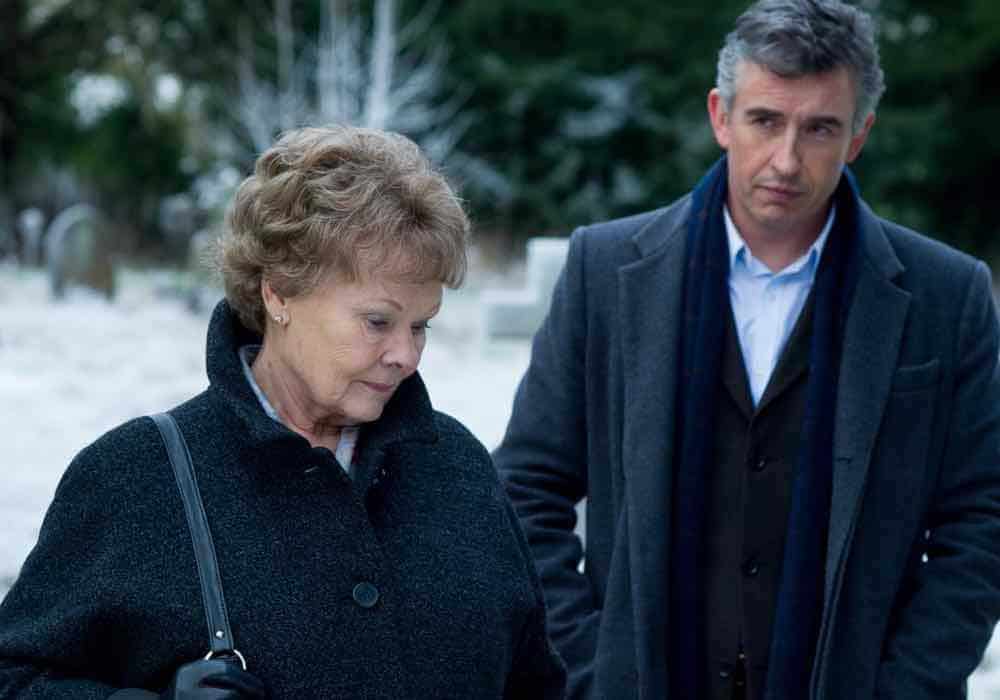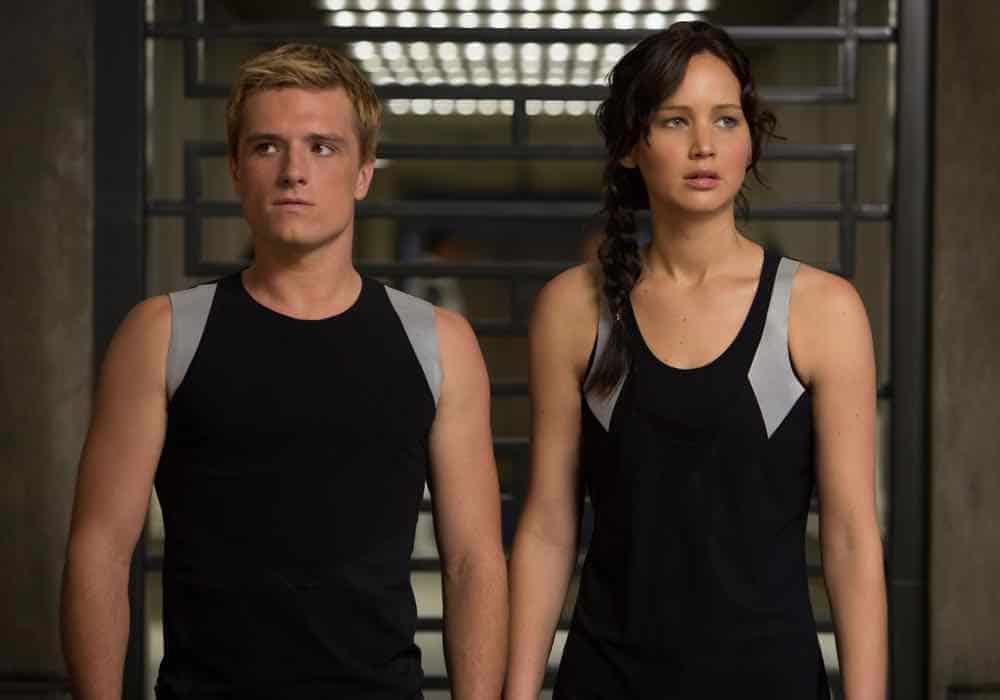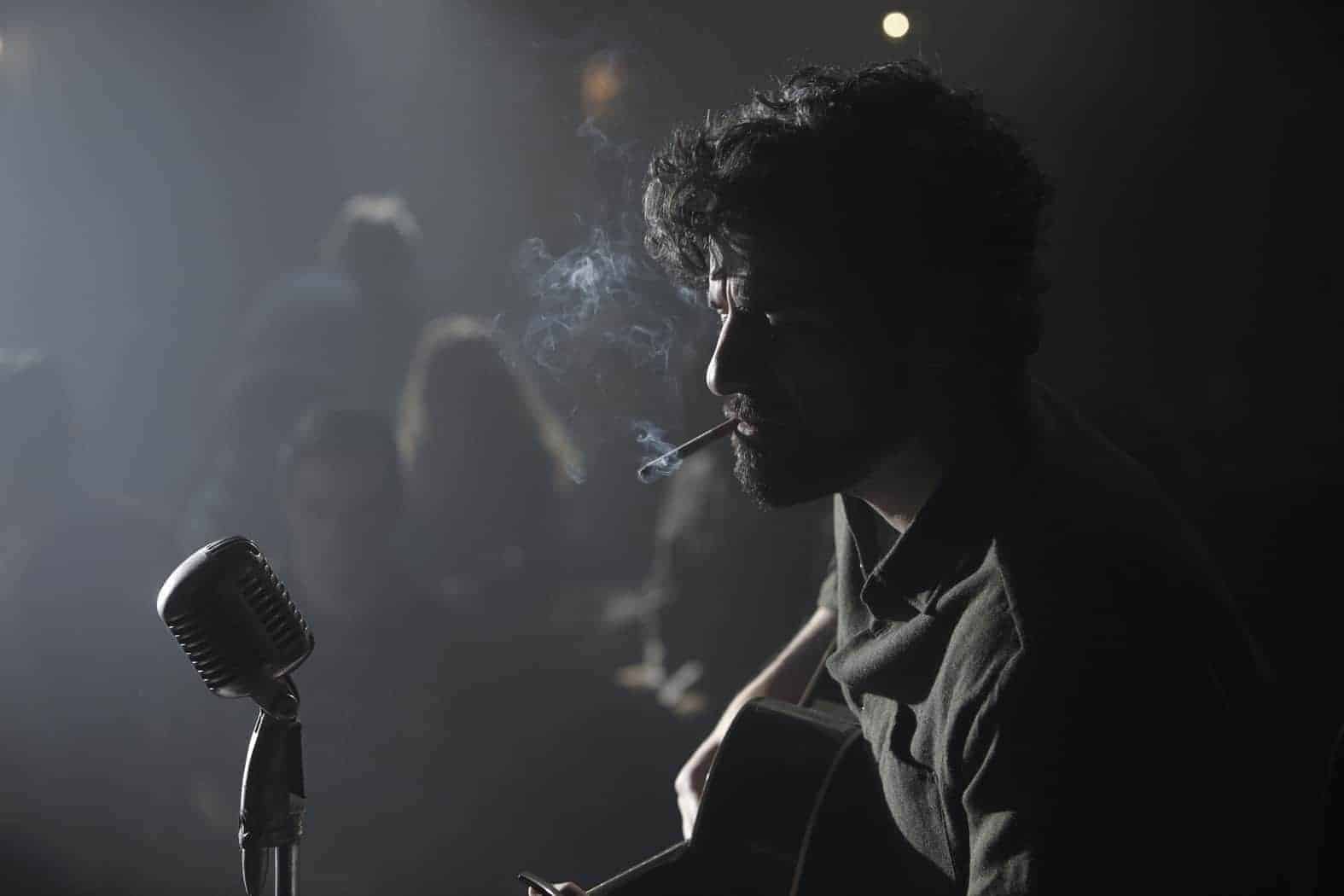
When Philomena (Judi Dench) returns to the Irish convent in Roscrea, she almost winces at the sight of it, as she pulls into the driveway with the reporter Martin Sixsmith (Steve Coogan). It was here that her parents abandoned her, where she gave birth to her son as a teenager, and then spent several unhappy years essentially enslaved in the laundry. Martin is accompanying her to write a human interest piece on her quest to find her son who was taken from her here fifty years ago; the convent sold him for adoption to an American family for 1000 pound. We follow her through the halls of the convent, and although we see flashbacks of her time there throughout the film, just watching Dench roam her old prison is chilling: we can see on her face how many painful memories these halls hold.
The nuns aren’t helpful, claiming to have lost all the records of the adoptions in a fire – a bonfire which the local townspeople inform them the nuns constructed themselves for this purpose – though they do still have the contract she signed giving up all rights to her son. She’s nonplussed by this, but Martin, a former catholic, takes this opportunity to show some of his trademark arrogant cynicism: how convenient that God would allow all the useful documents to be destroyed while preserving this one.
It may seem like they react so differently because he’s an educated intellectual, and she’s a simple old Irish woman, who has spent “a lifetime on a diet of Reader’s Digest and The Daily Mail”, as Martin condescendingly puts it to his wife. But this film isn’t just the simple film its premise might suggest – a road movie, in the UK and America, where two opposites unite on a common goal to find her long-lost son – and what may at first make Philomena seem like a simpleton, later shows itself to be actually evidence of remarkable strength of character.
But the film is less focussed on the mission to find her son than on the aftermath of this discovery and how Philomena deals with her guilt and the loss of a life with her son. There’s enormous hurt perpetrated on them both by the Catholic church, by a collection of people who feel no remorse. It turns out her son also has a secret: as a gay Republican, he had to have “a beard”, to quote Philomena, to attend party functions. That Philomena is tacitly and implicitly accepting of her son’s sexuality suggests that her fierce devotion to God is not merely tied to the institutions of worship, which are themselves corrupt, and behave in a manner that Martin likes to point out is “not very Christian”.
Philomena marks comic actor Steve Coogan’s major dramatic debut – he had a bit part in the film What Maisie Knew earlier this year – and he also penned, produced, and persuaded Stephen Frears to direct it. In the script, Coogan has put his wit to good use, maintaining buoyancy for this stark tale by profiting from the odd couple differences between Philomena and Martin without overdoing it. Frears’s direction also succeeds at a difficult balancing act – the film could have easily tipped into sentimentality or exploitive comedy – and any tears the film elicits are entirely earned.
Dench gives an unwavering performance as a woman who is a survivor, with an impressive ability to forgive even those that don’t deserve it. It keeps her kind and warm in spite of everything, including her deeply felt shame at her youthful indiscretion. Coogan is still playing a version of himself – much like the character he played in Michael Winterbottom’s The Trip and Tristram Shandy: A Cock and Bull Story — if a subdued one: arrogant, intelligent, wisecracking, abrupt, and occasionally cold in manner even if his feelings are warmer. His world-wearied pessimism and justifiable anger is something that we can relate to, but we learn, just as Martin does, that this attitude has its flaws.
Read more: Review: I, Daniel Blake is a declaration of personhood >>

